Physicists answer question of Supergalactic Plane's absent spiral galaxies
Sunday, 26 November 2023 06:39 Astrophysicists say they have found an answer to why spiral galaxies like our own Milky Way are largely missing from a part of our Local Universe called the Supergalactic Plane.
The Supergalactic Plane is an enormous, flattened structure extending nearly a billion light years across in which our own Milky Way galaxy is embedded.
While the Plane is teeming with bright elliptical galax
Astrophysicists say they have found an answer to why spiral galaxies like our own Milky Way are largely missing from a part of our Local Universe called the Supergalactic Plane.
The Supergalactic Plane is an enormous, flattened structure extending nearly a billion light years across in which our own Milky Way galaxy is embedded.
While the Plane is teeming with bright elliptical galax Instruments led by IRF selected for ESA potential future mission to either Mars or Earth's Orbit
Sunday, 26 November 2023 06:39 The European Space Agency (ESA) has announced the selection of three prospective space missions. Among these missions, the Swedish Institute of Space Physics (IRF) takes the lead in managing the scientific instrument consortia for two projects: the Plasma Observatory and M-MATISSE. The forthcoming three-year "Phase A" which consists of comprehensive technical and scientific studies will be funde
The European Space Agency (ESA) has announced the selection of three prospective space missions. Among these missions, the Swedish Institute of Space Physics (IRF) takes the lead in managing the scientific instrument consortia for two projects: the Plasma Observatory and M-MATISSE. The forthcoming three-year "Phase A" which consists of comprehensive technical and scientific studies will be funde Space Force extends Kratos’ contract for satellite ground systems
Saturday, 25 November 2023 19:27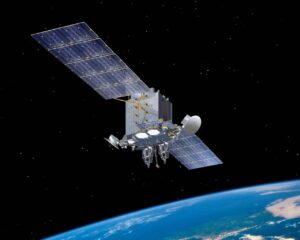
Tracking an errant space rocket to a mysterious crater on the moon
Saturday, 25 November 2023 13:40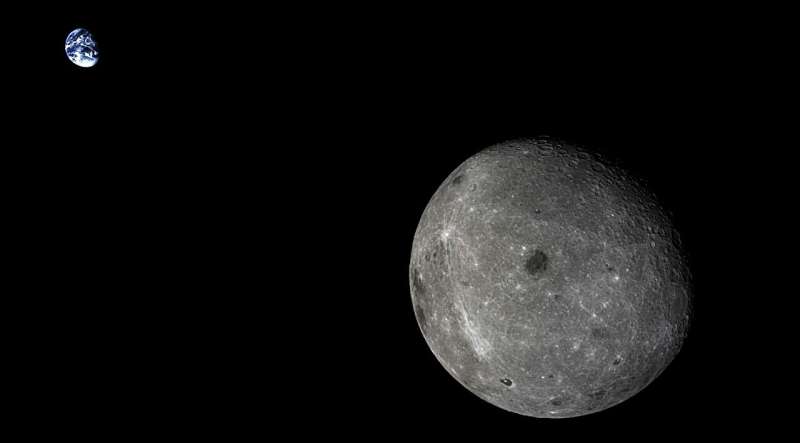
In March 2022, a defunct part of a space rocket hurled toward the moon's surface and impacted near the Hertzsprung Crater, an enormous impact feature on the far side of the moon that is never directly visible from Earth.
Curiously, and unlike any other space hardware that ended up on the moon's surface, this one left behind not one but two craters, causing speculation about what exactly it was that found its final resting place on the moon's surface, according to Tanner Campbell, a doctoral student at the University of Arizona Department of Aerospace and Mechanical Engineering in the College of Engineering and the study's first author.
How NASA keeps Ingenuity going after more than 50 flights
Friday, 24 November 2023 17:56
More information is always better when it comes to publicly funded space exploration projects. So it's welcome when a NASA engineer takes time out of the assuredly busy work lives to provide an update on everyone's favorite helicopter on Mars. Ingenuity has been having a rough few months, and a new article entitled "The Long Wait," posted by Travis Brown, Chief Engineer on the Ingenuity project, on NASA's website, provides a good amount of detail as to why.
The problems started when Ingenuity took off for flight #52 on April 26th. When the helicopter landed, it was out of range Perseverance, its rover companion, and the helicopter's radio link back to its controllers on Earth. This was intentional, but it meant that Ingenuity's minders didn't know whether the flight had been completed successfully.
Dr. Brown explains why the team would intentionally choose to land the helicopter out of range of Perseverance and details the four main mission priorities for the helicopter's secondary mission.
Understanding a satellite's death spiral
Friday, 24 November 2023 17:48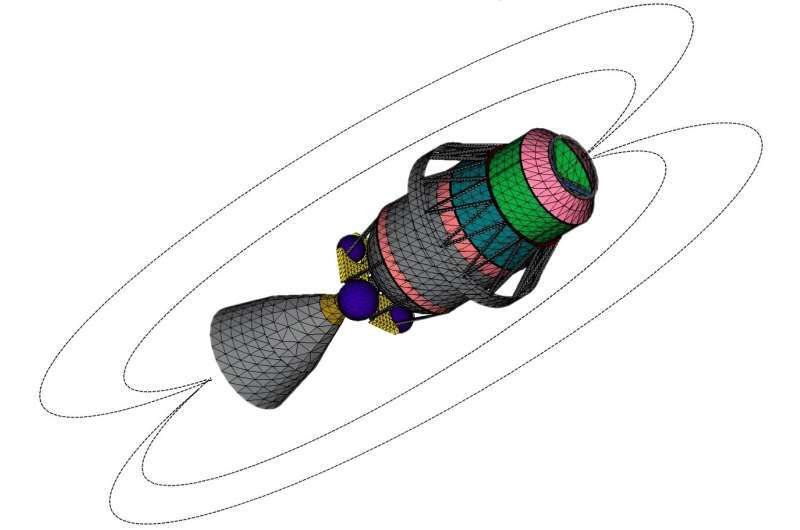
Down on the ground, death equals stillness—but not in space. Abandoned satellites are prone to tumble in unpredictable ways, and an ESA project with the Astronomical Institute of the University of Bern sought to better understand this behavior.
ESA's Clean Space initiative has plans to remove dead satellites from highly trafficked orbits. The preferred method of "Active Debris Removal" involves grabbing the target object, in which case knowledge of its precise orientation and motion will be vital. So the need to understand the tumbling that almost all satellites and rocket bodies undergo after their mission end-of-life is clear.
The project combined optical, laser ranging and radar observations to refine an existing "In-Orbit Tumbling Analysis" computer model, aiming to identify, understand and predict the attitude motion of a fully defunct satellite within a few passes. More than 20 objects were observed during a two-year campaign.
The long list of perturbation triggers includes "eddy currents" as internal magnetic fields interact with Earth's magnetosphere, drag from the vestigial atmosphere, gravity gradients between the top of an object and its bottom, outgassing and fuel leaks, the faint but steady push of sunlight—known as "solar radiation pressure"—micrometeoroid and debris impacts, even the sloshing of leftover fuel.
Paper explores ideal orbits for space-based interferometers
Friday, 24 November 2023 16:03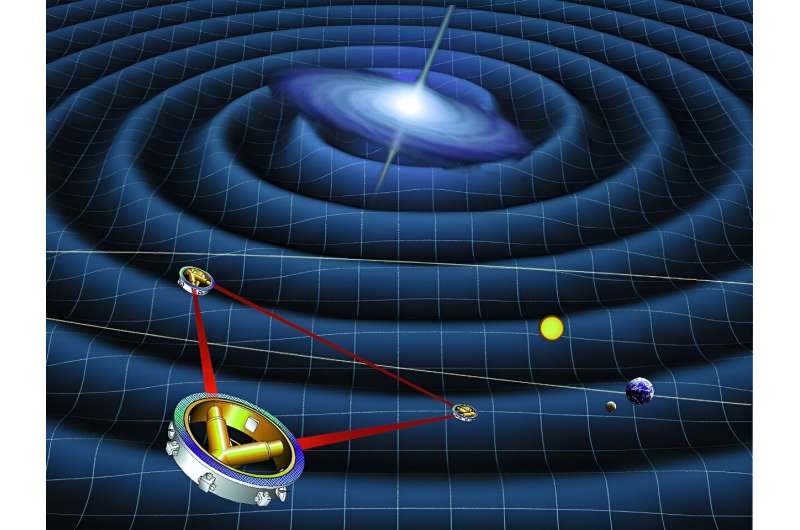
Ever since the telescope was invented in 1608, astronomers have striven for bigger and better telescopes. When it comes to instruments to observe the sky, bigger really is better whether you are observing faint galaxies or planets a larger collector gives higher resolution and brighter images. A paper by Takahiro Ito from the Institute of Space and Astronautical Science in Japan recently posted to the arXiv preprint server looks into different kinds of orbits around Earth which support multiple telescope systems known as interferometers at different orbits.
There is a limit to the size of telescopes based on Earth, they can become so large that they warp under their own weight so it is a constant battle to keep images sharp. An alternative solution is to hook up multiple telescopes so they work together. These interferometers work well on Earth but space-based instruments offer further challenges. In Ito's study, which looks into different types of orbits, it seems there is one orbit in particular that favor the space-based interferometer.
Collaboration is key to providing security during crises
Friday, 24 November 2023 13:22
Representatives of the space industry came together with individuals from ESA member states, user communities and academia on 22-23 November to discuss how space data are being made more secure and accessible in response to an increasing number of crisis situations, such as climate-change related natural disasters.
Week in images: 20-24 November 2023
Friday, 24 November 2023 13:10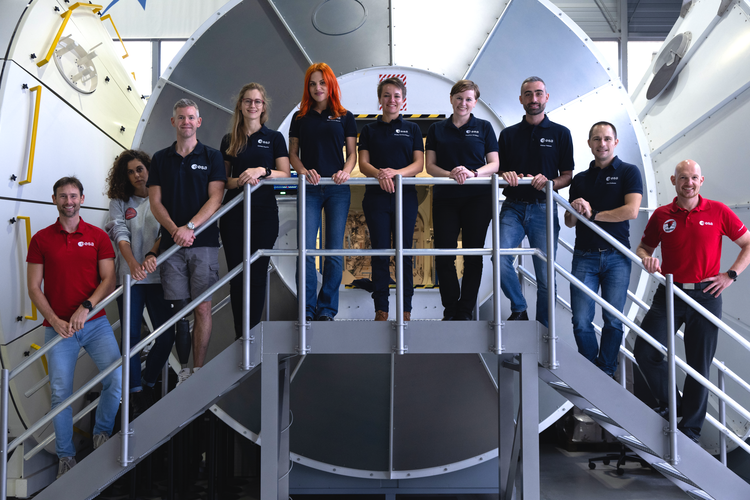
Week in images: 20-24 November 2023
Discover our week through the lens
Ariane 6 hot-fires: the highlights
Friday, 24 November 2023 12:00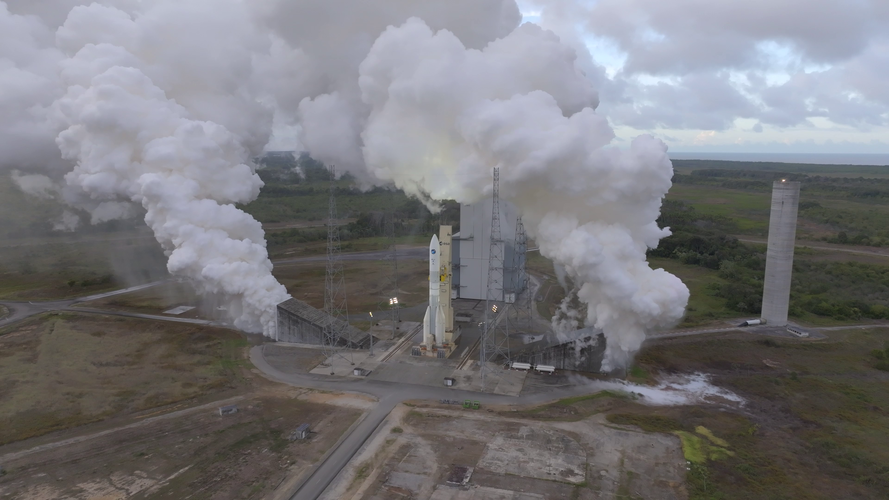 Video:
00:01:25
Video:
00:01:25
Cinq, quatre, trois, deux, un. Allumage Vulcain! This is the moment Ariane 6’s main engine was sparked into life, and the entire main stage of the new rocket and the many parts of the launch pad in Kourou, French Guiana, practised for the full duration of a launch. Of course, as planned, the test model did not leave the ground.
Without its boosters, instead of piercing the clouds Ariane 6’ created its own on Earth: a clean byproduct of the Vulcain 2.1 engine’s oxygen and hydrogen propellants, which came together to send out impressive swirls of H2O.
After the
Watch live: Launch of EIRSAT-1
Friday, 24 November 2023 11:30
Watch the live launch broadcast of Ireland’s first satellite EIRSAT-1 on ESA Web TV Channel 2 and ESA YouTube, currently scheduled for 29 November. Coverage of this historic moment is set to begin shortly before 18:00 UTC (19:00 CET) (times to be confirmed).
HummingSat: a new chapter in space innovation unveiled
Friday, 24 November 2023 10:22
ESA and SWISSto12, a leading manufacturer of advanced satellite payloads and systems, have signed a contract for the full development of a new product line of satellites called HummingSat.
‘The making of Juice’: the story behind the film
Friday, 24 November 2023 09:00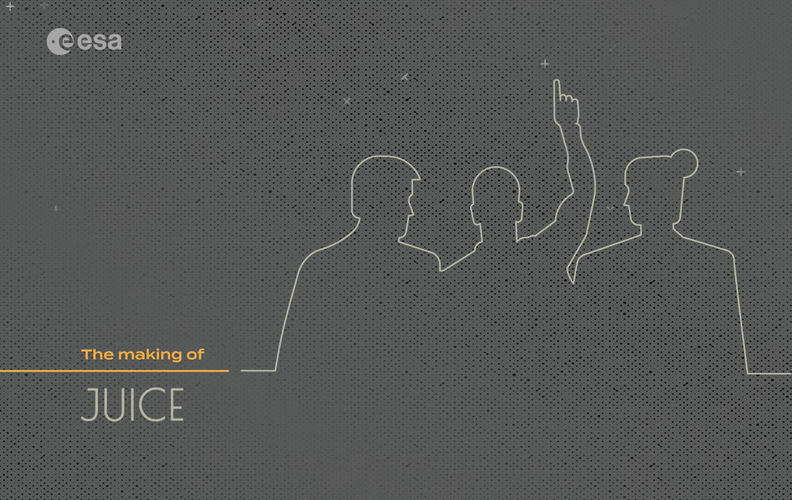
One giant planet. Three icy moons. An eight-year journey. One special spacecraft.
Building a mission to Jupiter took years of planning and thousands of people. Now that Juice is finally en route to its destination, our documentary ‘The making of Juice’ takes a look behind the scenes at the development and testing of the spacecraft in the three years leading up to launch. We hear from Juice Project Manager, Giuseppe Sarri, about how and why the film was made.
Earth from Space: Salty lakes
Friday, 24 November 2023 08:00 Image:
The Copernicus Sentinel-2 mission captures the colourful waters of two salty lakes in East Africa: Lake Natron in northern Tanzania and Lake Magadi in southern Kenya.
Image:
The Copernicus Sentinel-2 mission captures the colourful waters of two salty lakes in East Africa: Lake Natron in northern Tanzania and Lake Magadi in southern Kenya. Europe's Ariane 6 rocket successfully completes hot-fire test
Friday, 24 November 2023 06:39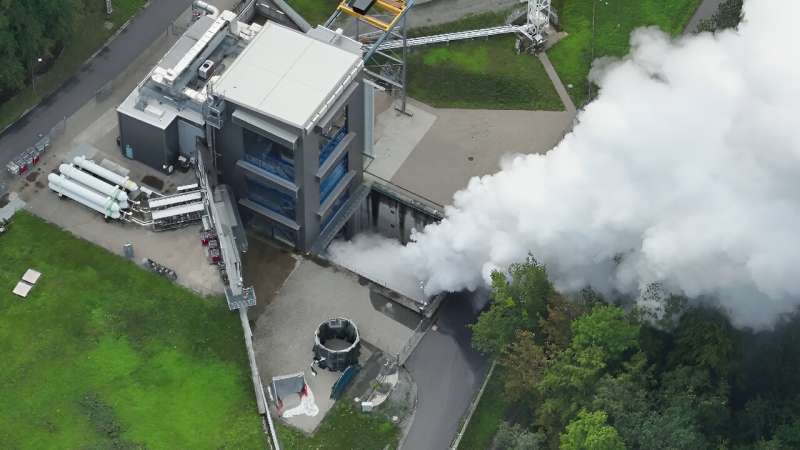
The European Space Agency's Ariane 6 rocket successfully completed a dress rehearsal on Thursday, test-firing its engine in preparation for a maiden voyage scheduled for 2024.
The final results of the ignition test, which involved firing up the Vulcain 2.1 engine and running it for more than seven minutes, will not be released until November 30, pending a full analysis.
But manufacturer ArianeGroup already called the rehearsal "successfully completed".
The hot-fire test at Europe's Spaceport in French Guiana "simulated a complete launch sequence and thus validated the entire flight phase of Ariane 6's core stage," it said in a statement after Thursday's rehearsal.
ArianeGroup CEO Martin Sion praised the team for the "real industrial feat", but added that "a few additional tests", notably fault tolerance, were still needed before the rocket was ready for launch.

